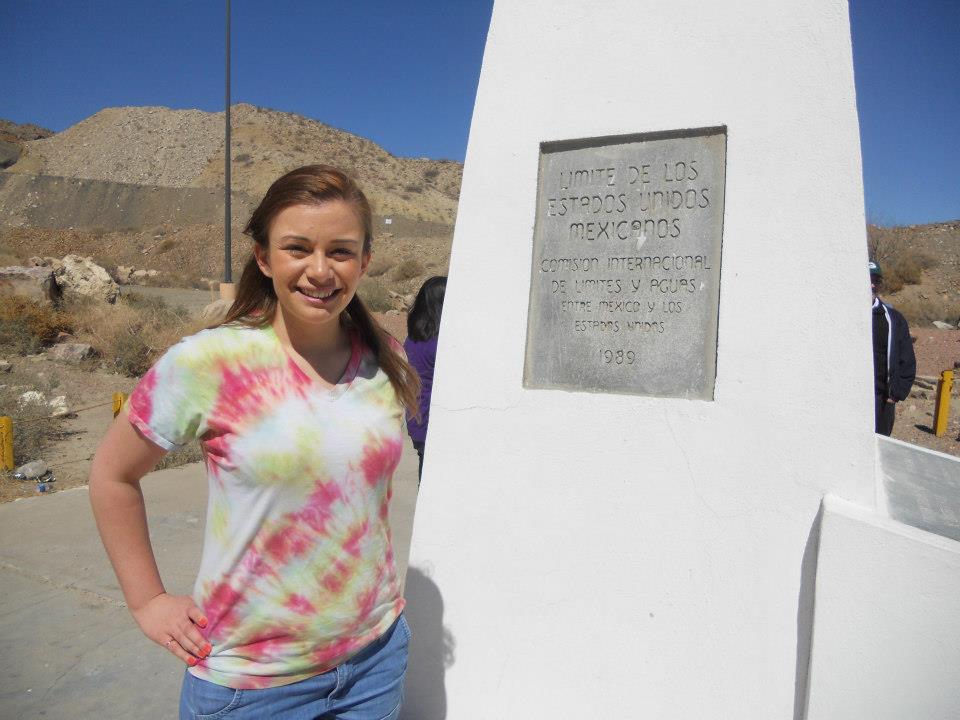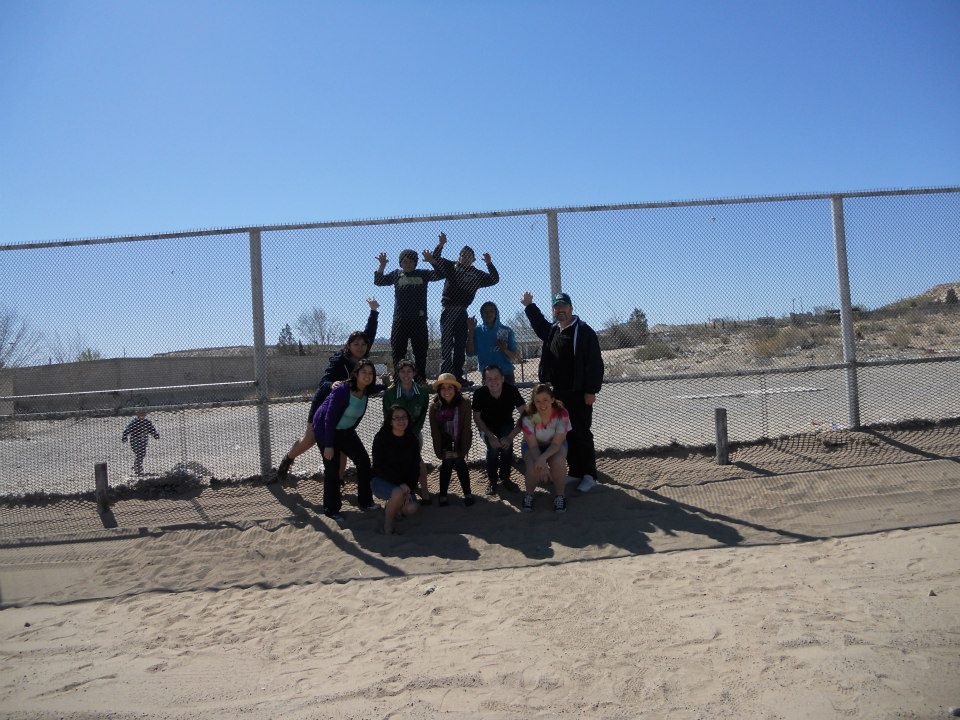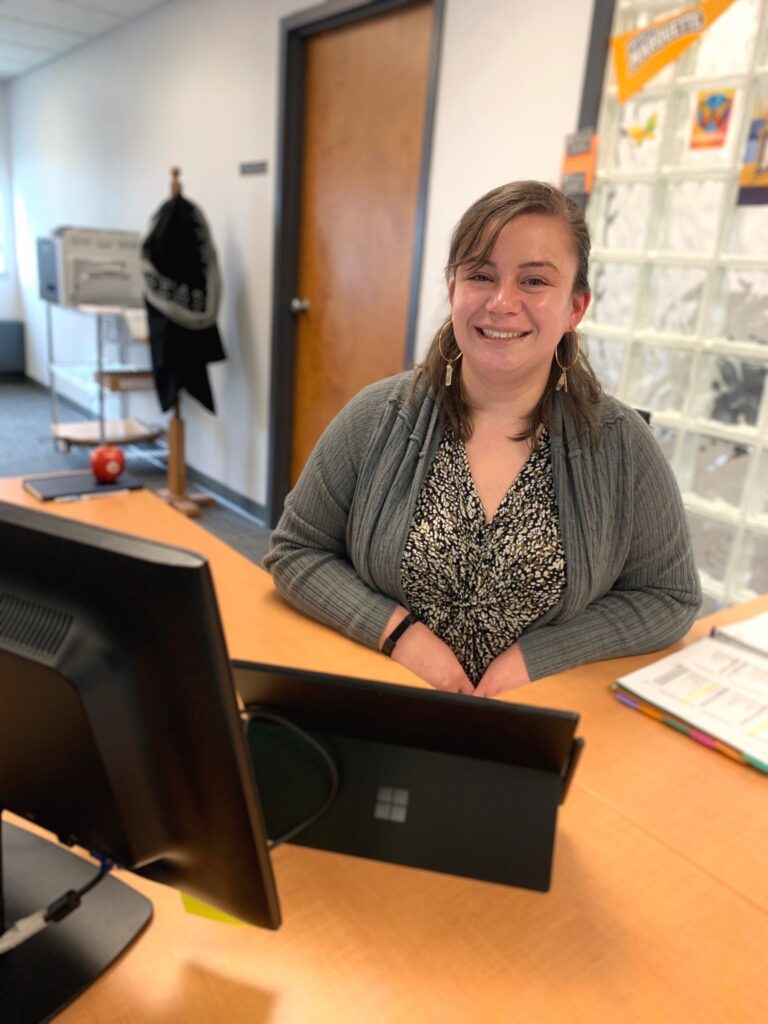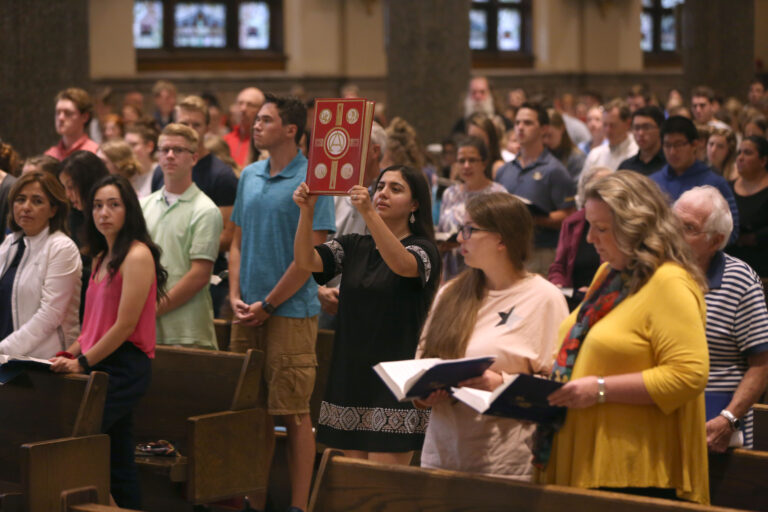For Dani Castillo, opening her home — and her heart — is the right thing to do

By Shelby Williamson, senior communication specialist in the Office of Marketing and Communication
As the child of immigrants, Daniela Castillo has a special place in her heart for those seeking a better life in the United States. So much so, that over the past eight years she has opened up her home to dozens of young adults seeking asylum, as they work their way through the immigration court system.
She has also helped reunite children as young as 2 years old with their parents after having been separated at the border.
Castillo, office associate for the Civil, Construction and Environmental Engineering Department in the Opus College of Engineering, first traveled to the U.S.-Mexico border in 2012 through Marquette University’s Border Awareness Experience.

“It’s an alternative spring break trip where you go to Annunciation House and live in the shelter with people who are seeking asylum,” Castillo says. “You learn about what’s going on at the border, for example, how there are different aspects of this mechanism that is the immigration system. It really inspired me.”
What became immediately clear during that trip to the border, she says, is that there are large numbers of people living in detention centers who simply need a chance and a real roof over their heads to make seeking asylum possible.
 Since that trip, Castillo has worked with organizations that connect her to individuals from various countries seeking asylum in need of a place to stay, access to basic necessities and the ability to attend all required court hearings. Some stay at her home for a couple weeks; others several months. All who come through Castillo’s home are those the U.S. has determined have viable cases for asylum.
Since that trip, Castillo has worked with organizations that connect her to individuals from various countries seeking asylum in need of a place to stay, access to basic necessities and the ability to attend all required court hearings. Some stay at her home for a couple weeks; others several months. All who come through Castillo’s home are those the U.S. has determined have viable cases for asylum.
There are five different criteria in order to apply for asylum, Castillo says. Applicants must prove they are fleeing their home country to avoid persecution based on their race, religion, nationality, membership in a particular social group or political opinion.
Those who have stayed with Castillo over the years have come to the U.S. under different circumstances — some of them devastating. One individual fled to the U.S. after multiple members of their family were killed in their home country for fighting for rights to education.
Though all of the people who stay with Castillo are there at separate times and have gone through different experiences, they all have one thing in common — they become a member of Castillo’s family.
It can take a while for some to settle in, Castillo says. They have to adjust to new surroundings, a new language and more. Perhaps most heartwarming, she adds, is getting to watch children and young adults finally get to relax and not have to live in constant fear.
Sometimes it’s the simplest things, like a snack, a video game or affection from one of Castillo’s three dogs that brings the biggest smiles to the faces of those staying with Castillo.
Those are the instances, she says, that really put into perspective the things so many take for granted.
Castillo is aware that what she does — essentially letting strangers in her house — is a bit unconventional, a reality also not lost on her family and friends.
“But I’m just as much of a stranger to them as they are to me, right? They are the ones away from their friends and family. They know no one here,” she says. “I am just doing what I imagine any normal person would do. I know my ‘normal’ is not anyone else’s ‘normal’ . . . I guess you could say I am doing what I hope someone would do for me if I were in their (the asylum seekers’) situation.”
All of those Castillo has had the pleasure of housing have been granted asylum. Some are still in the Milwaukee area, now with their own jobs and homes. Each year, many of them gather at Castillo’s home for a Thanksgiving party.
As much as she is a resource to them as they navigate the courts, Castillo says the greatest thing of all is listening to those who have been granted asylum and have since left her home give first-hand guidance and support to the latest person to stay with her.
“I know it sounds really weird, but I don’t see myself as part of the solution. What I do is like a small band-aid over a gushing wound,” she says, adding that there are tens of thousands of people, including children, living in detention centers at the border, some separated from their parents, with nowhere to go.
With that, she hopes others who are able will consider housing those in need — though, the overall goal is to improve the immigration system at the macro level.
“It is an absolute privilege to be able to do what I do,” Castillo says. “But the ironic thing is that I do what I do now, in the hopes that someday I won’t have to.”

Do you know a faculty or staff member who gives their time and talent to service outside the university community? We want to hear about it. Share your story idea with Marquette Today by emailing Abby Cole in the Office of Marketing and Communication.


